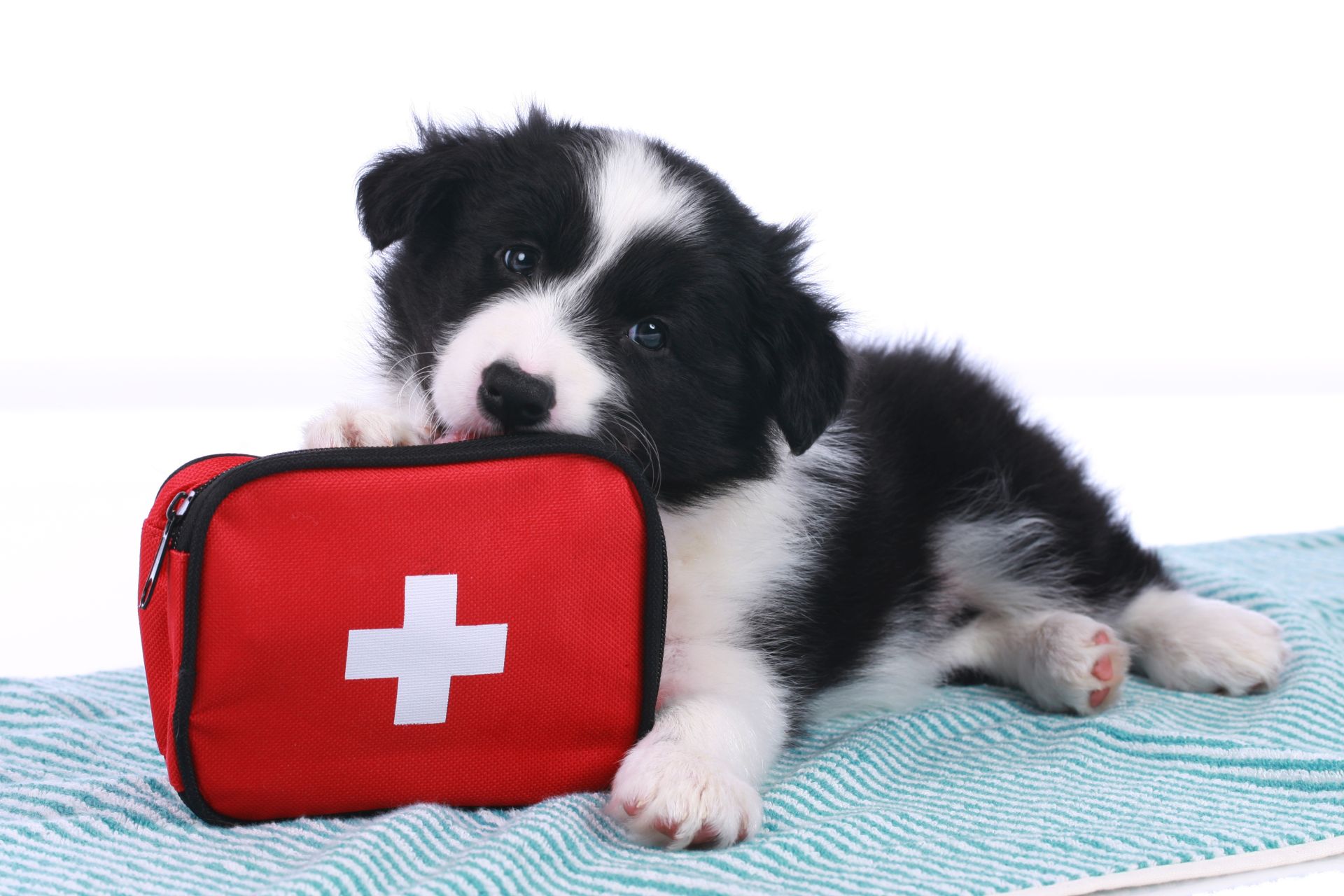How to Prepare for an Emergency or Disaster
Oregon Humane Society encourages pet owners to keep their pets in mind when preparing for disaster or an emergency. Having a plan and a kit ready to go will help keep pets safe in a disaster or emergency situation.
- In order to contain and control your pets during an evacuation, you’ll need a sturdy harness and leash for each dog and a carrier for each cat. In choosing a cat carrier, choose one that is large enough to serve as a temporary apartment for your cat.
- Pre-pack your pet’s kit in a backpack for ease in transportation and include supplies for at least one week. Include current photos of your pets in case they get lost.
- Include dry food, a manual can opener for any canned food, clumping cat litter, drinkable water, serving dishes, small litter box, litter scoop, and plastic bags for waste disposal.
- A pet first aid kit is essential. Include any medications and medical records (stored in a waterproof container). Include information on feeding schedules, medical conditions, behavior problems, and the name and number of your veterinarian in case you have to foster or board your pets.
- You can also include pet beds or favorite toys, if easily transportable.
Current pet identification is the single most important thing you can do to help ensure that you will be reunited with a lost pet. Make certain your pet (even an indoors-only cat) is wearing a collar with visible identification tags with your phone number. A microchip implant is a secure form of identification that can’t be lost. Be sure to carry a photograph with you or have a photo on your phone to increase the likelihood of finding a missing pet.
Your neighbors may be home when a disaster hits and may be your best resource for evacuating your pets if you are at the office or away from the area and unable to reach your home.
If you must evacuate your home, do not leave your pets behind. If it is unsafe for you to remain, then it is unsafe for your pets as well. In a widespread emergency, the Red Cross sets up shelters to deal with human needs, but only service dogs are permitted inside. Therefore, you will need to have a separate shelter plan for your pets.
Friends and family residing outside your immediate area are a possibility. Check with them to see if they would be willing to help shelter your pets.
Contact hotels and motels outside your local area to check their policies on accepting pets and restrictions on number, size and species. Ask if “no pet” policies can be waived in an emergency. Keep a list of “pet friendly” places, including phone numbers, with your disaster supplies.
Make a list of boarding facilities and veterinarians who could shelter animals in an emergency; include 24-hour phone numbers.
Most of us expect to outlive our beloved animals. But, what if — faced with the unexpected — you are no longer able to care for them? You can make provisions for your surviving pets through your will or other estate documents. Ensure the welfare of your pet with the unique Friends Forever Program.
Giving temporary shelter to misplaced pets during a disaster saves lives. If you do take in a lost dog or cat, make sure to let rescue organizations know so that the animal can be reunited with its family.
The ASPCA recommends using a rescue sticker alert to let emergency responders know that pets are inside your home. Make sure the sticker is visible to rescue workers, and that it includes the types and number of pets in your household and your veterinarian’s phone number.
If you evacuate with your pets, (if time allows) write “EVACUATED” across the stickers so rescue workers don’t delay by looking for pets who have already been evacuated.
During wildfires, ash in the air can be common. Here are some reminders to keep pets safe:
- Keep pets indoors. Ash is abrasive and can do permanent damage to your pet’s eyes. Also ash can cause respiratory problems for pets and prolong exposure can be fatal for animals
- Store extra food and drinking water
- Keep extra medicine on hand
- If pets go outside, brush or vacuum them before letting them indoors
- Make sure livestock have clean food and water
How to keep pets safe in cold weather:
- Keep your pets indoors, especially when temperature reaches 30 degrees, with or without the wind-chill factor. Leaving pets outdoors presents a number of dangers including injury, frostbite and disorientation.
- If your pet goes outside, limit the time that your pet goes outside, limit the time that your pet stays outside, especially if they have a short coat and are sensitive to the cold weather. Consider a coat for short-haired pets.
- Young and senior pets can be especially vulnerable to cold temperatures. So keep them cozy and warm inside your home.
- Even though it’s cold, pets can still become dehydrated if they are getting a lot of exercise. Provide access to fresh clean water and for any animals who are outside like horses and goats. Make sure outdoor water bowls don’t freeze over.
- Massaging petroleum jelly or other paw protectants into paw pads before going outside can help protect from the cold, salt, and chemical agents. Booties provide even more coverage and can also prevent sand and salt from getting lodged between bare toes and causing irritation.
- Use non-scented cat litter to help increase traction on sidewalks for people and pets in icy conditions.
- Watch for anti-freeze or other chemicals that can leak under cars or in garages. This toxic liquid has a sweet taste, but can be deadly for pets. Quickly remove puddles or possible contamination by wiping down and rinsing appropriately. If your pet is exposed to anti-freeze, make note of the type and volume and seek immediate veterinary attention.








